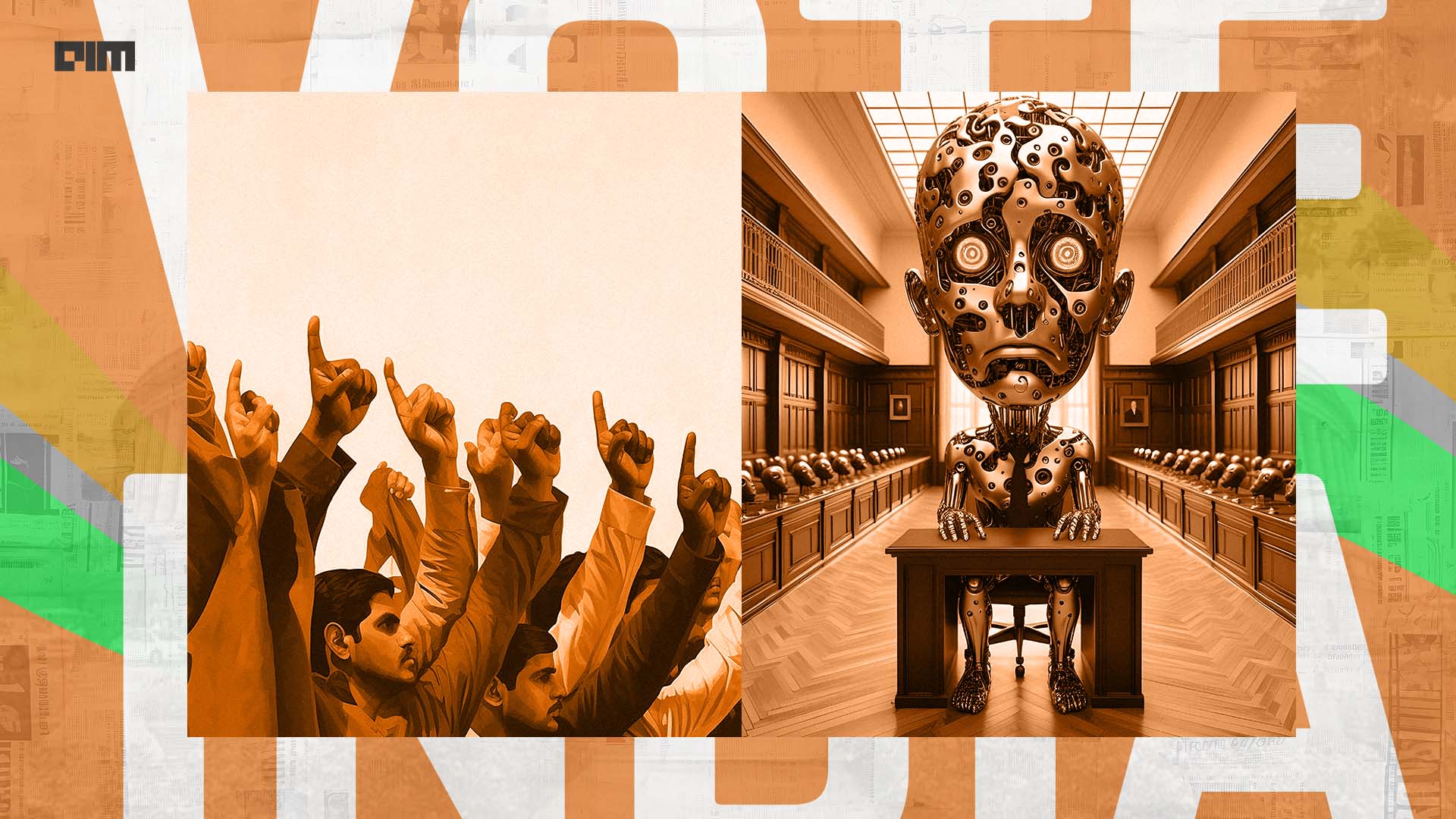
As the world’s largest election begins, political parties have confirmed the use of AI tools for campaigning. Political strategists claim that AI has become a significant asset, with the BJP leading in its utilisation for electoral purposes. The Congress, however, is using minimally or barely at all.
“The BJP has notably excelled in technology adoption since its inception, positioning itself as a frontrunner in AI integration. In contrast, other political parties have been slower in embracing this technology,” said MJ Srikant, Political Consultant and Election Strategist, sharing his insights with AIM on the current status of AI integration in the 2024 elections.
Sagar Vishnoi, an Independent Political Campaigner and Strategist, observed that the BJP is at the forefront as they use AI to translate their messaging into multiple languages.
“Congress is leveraging new social media tactics for election campaigning, aiming to compete with BJP’s strategies. However, regional parties appear to have limited budgets and less interest in adopting AI technologies for political communication,” Vishnoi mentioned.
“We use AI tools to finetune speeches. And also for translation purposes,” shared Surabhi Hodigere, BJP Spokesperson, on how the party is using AI tools.
Milind Dharmasena, a Congress spokesperson, emphasised their application of AI for communication enhancement, particularly aiding Rahul Gandhi in connecting with local dialects and further designing posters for the campaign.
AI BJP vs AI Congress
Interestingly, both parties have differing agendas regarding AI ambitions in the country. The BJP aims to safeguard citizen safety and privacy, leaning towards some form of regulation, while the Congress views AI advancements as an opportunity to create jobs.
Recently, the BJP outlined its ambition to position Bharat as a global leader in AI innovation in its manifesto. The party, which has been in power for the past 10 years, has tasked NITI Aayog with establishing guidelines and policies for the development and use of AI.
In 2018, NITI Aayog introduced the National Strategy for Artificial Intelligence, outlining guidelines for AI research and development across various sectors, including healthcare, agriculture, education, “smart” cities, infrastructure, and smart mobility. In 2021, NITI Aayog published Part 1 – Principles for Responsible AI and Part 2 – Operationalizing Principles for Responsible AI.
Recently, the government enacted the Digital Personal Data Protection Act in 2023, which can be utilised to address privacy concerns related to AI platforms.
“India has set a benchmark for personal data protection globally with its model legislation. Tejasvi Surya, MP of the Bangalore South Lok Sabha constituency, played a significant role in shaping this law as a member of the Joint Parliamentary Committee on Personal Data Protection Bill,” shared the team from Tejasi Surya Office.
“AI can be viewed as a double-edged sword. Problem or not, the advent of AI is inevitable. So, MeitY has introduced initiatives to address some of the privacy issues concerning AI platforms,” they added.
In its 2023 AI report, MeitY has outlined seven pillars for strategic AI development, including Centers of Excellence, Dataset Platform, and future skills initiatives.
Further, the report recommends how India can leverage its demographic dividend and play to its strengths as an IT superpower to further the penetration of AI skills in the country, strengthening the AI compute infrastructure in India to support AI innovation through public-private partnerships (PPPs).
On the other end, the Congress party, in their 2024 manifesto, pledges to encourage the adoption of AI, robotics, and similar technologies to generate new employment opportunities.
“We firmly believe AI is the future. Our priority will be to stimulate greater use of AI and robotics, fostering the creation of additional job opportunities,” said Congress spokesperson Minlind Dharmasena, expanding on this commitment and expressing confidence in India’s AI advancement.
Who will lead the AI revolution in India?
With the BJP’s longstanding commitment to technological innovation, it is well-positioned to harness AI as a progressive force for the country. At the same time, Congress also fits perfectly into the AI narrative, promoting job opportunities in the country.
Rahul Gandhi and Narendra Modi's Views on AI"
Whose perspective on AI aligns more with your own?#narendramodi #bjp #india #modi #rahulgandhi #congress #delhi #indian #artificialintelligence #ai #machinelearning #technology #datascience #python #deeplearning pic.twitter.com/VeF6kZG7zF— The Source Insight (@DSourceInsight) March 29, 2024
Today, the BJP-led government has introduced initiatives and guidelines for the responsible development of AI technologies, but there are currently no specific laws regulating AI in the country. The ongoing elections could also be one of the reasons why it has taken a backseat.
Generative AI, along with other AI advancements, has already penetrated numerous industries, including education, healthcare, and the workforce. The political parties that come to power can significantly influence the progress of AI in the country.
As AI increasingly becomes the future, the decisions made by those in power can either propel or hinder its development. Therefore, choose your vote wisely.
The post The Impact of Lok Sabha Election on India’s AI Progress appeared first on Analytics India Magazine.